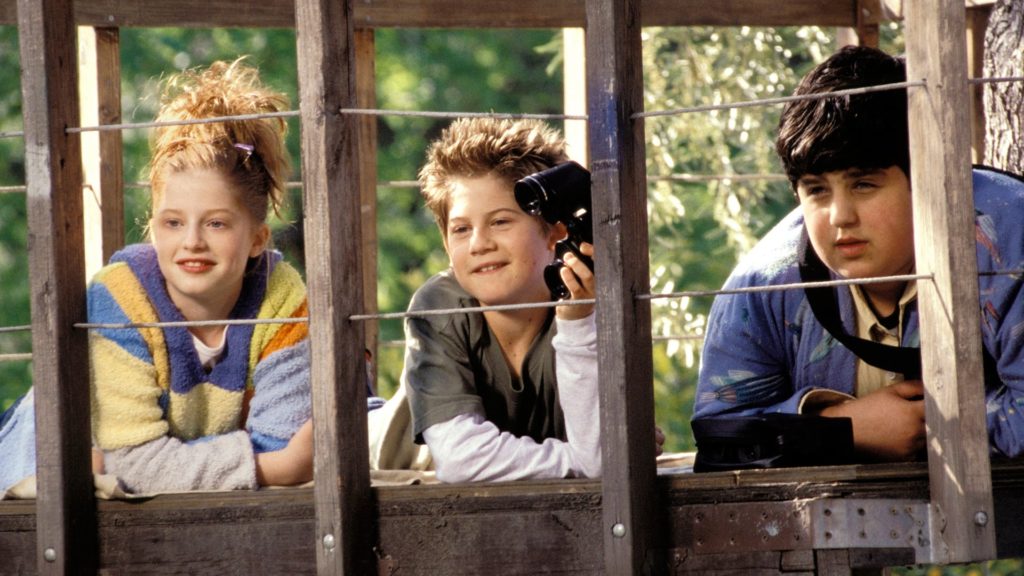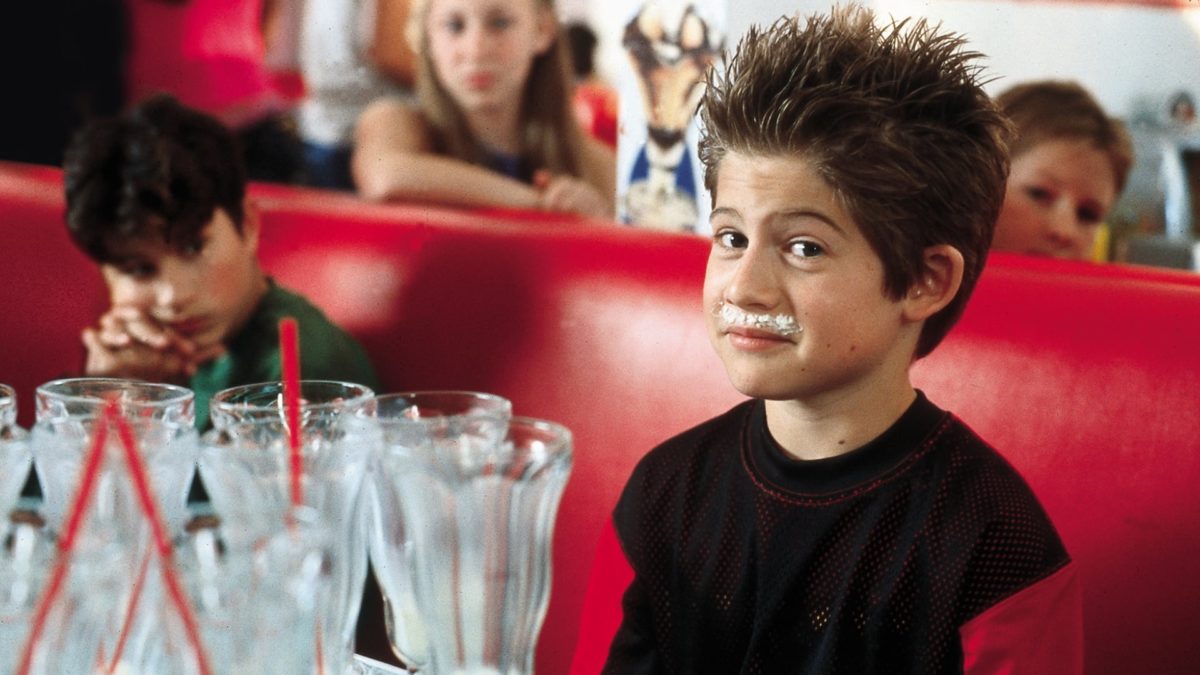Max Keeble’s Big Move is 100% tween boy cheese, but it’s exactly the kind of cheese I love: wish fulfillment and larger-than-life middle school shenanigans delivered with more heart than expected. Let’s not mistake it for great cinema, but let’s also not toss it to the dustbin just because it will never be in the Criterion Collection.
The movie’s central scenario — which it takes almost a half hour to get to — is that seventh grader Max Keeble has learned he’s moving in a week, so he gets to live his life consequence-free for a few days, since he won’t have to pay the piper. At first this turns out well for him, far better than expected: His ambitious plans to spite the bullies and the maniac principal go smoothly, fulfilling his lust for revenge and landing him some face time with the popular 9th graders. But — in a surprisingly nuanced message given the film’s scope — Max realizes that his one-dimensional fantasies have made him no better than the thing he wished to destroy, disconnecting him from the very reasons he shook everything up in the first place.
The movie has a zany, cartoonish energy to it not far removed from some of the iconic Nickelodeon and Disney Channel shows that aired in the early 2000s — Drake and Josh, Ned’s Declassified, etc. Characters almost all act as heightened versions of stereotypes: bullies, nerds, hotties, weirdos, etc. Oddly, one of the bullies (there are like 3) adopts the persona of a finance bro, which would seem to fly above the heads of most of the target audience. Even more bizarrely, one of the main villains is an ice cream man, usually an icon of innocence.

The movie’s script is more ambitious and polished than I expected: The film juggles about six subplots at once which often intersect in surprising ways. There’s lots of setup and payoff, with lines of dialogue repeated and twisted in meaningful ways. And some of the themes here are bold for the age range: There’s a real anti-capitalist flavor to Max’s resistance to the principal’s school stadium scheme, not to mention the cartoonishly off-putting, financially exploitative bully Dobbs.
The cast has its highs and lows. Alex D. Linz gets a passing grade as Max, no more or less than what the role calls for. Zena Grey and Josh Peck are fine as his sidekicks, and most of the other kid actors are solid. The adults are less consistent: Max’s parents, in particular, seem to have not the foggiest idea what to do in front of a camera.
But Larry Miller as Principal Jindraike is a revelation. You may know him as the dad in 10 Things I Hate About You. He clearly studied up on conniving principal characters (Ferris Bueller’s Day Off especially), and he leaves nothing on the table. It’s a remarkably unhinged performance just right for the film’s sense of anarchy.

The film maybe leans a little too hard on the hectic stuff ahead of the heartfelt stuff, but I was surprised it held together. Even the direction is not horrible, with lots of gnarly practical effects and coherent set pieces. (Though I must note that director Tim Hill seems to have never met a low angle shot he didn’t like.)
It’s not, strictly speaking, a good movie, but it sustained me for an hour and a half and made me nostalgic for 2001 — good God is this movie peak 2001 — which is no small feat.
Is It Good?
Nearly Good (4/8)
Dan is the founder and head critic of The Goods. Follow Dan on Letterboxd. Join the Discord for updates and discussion.

